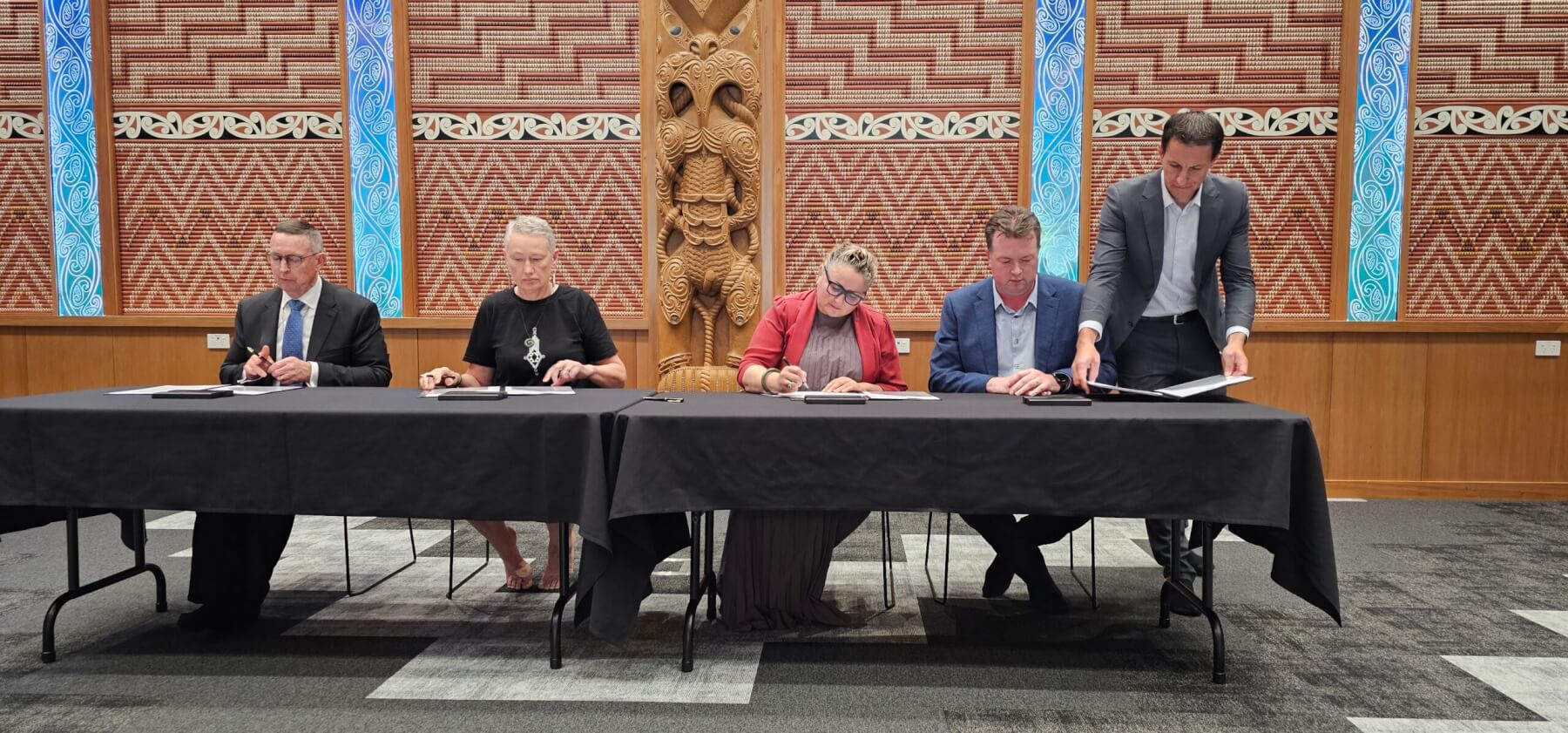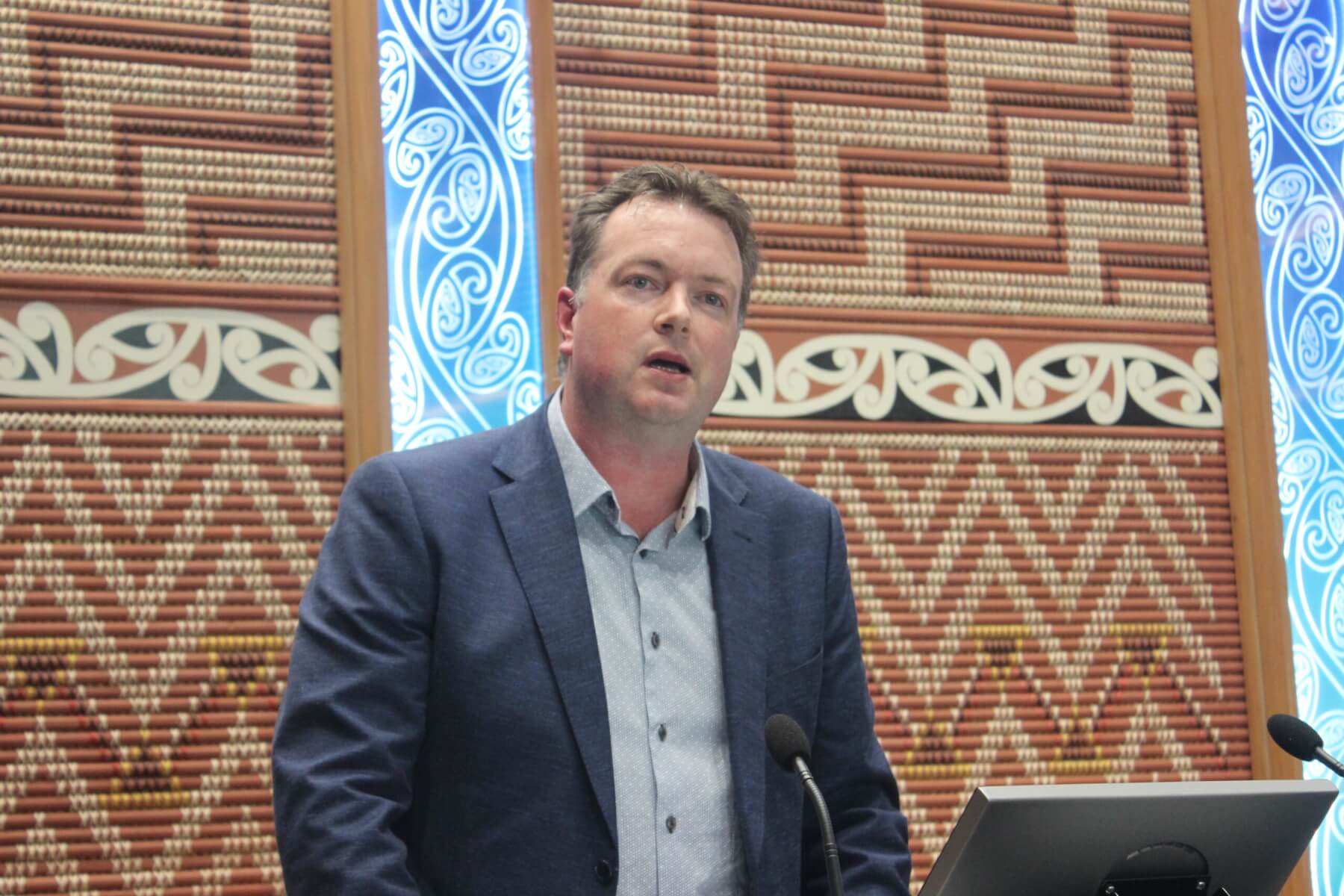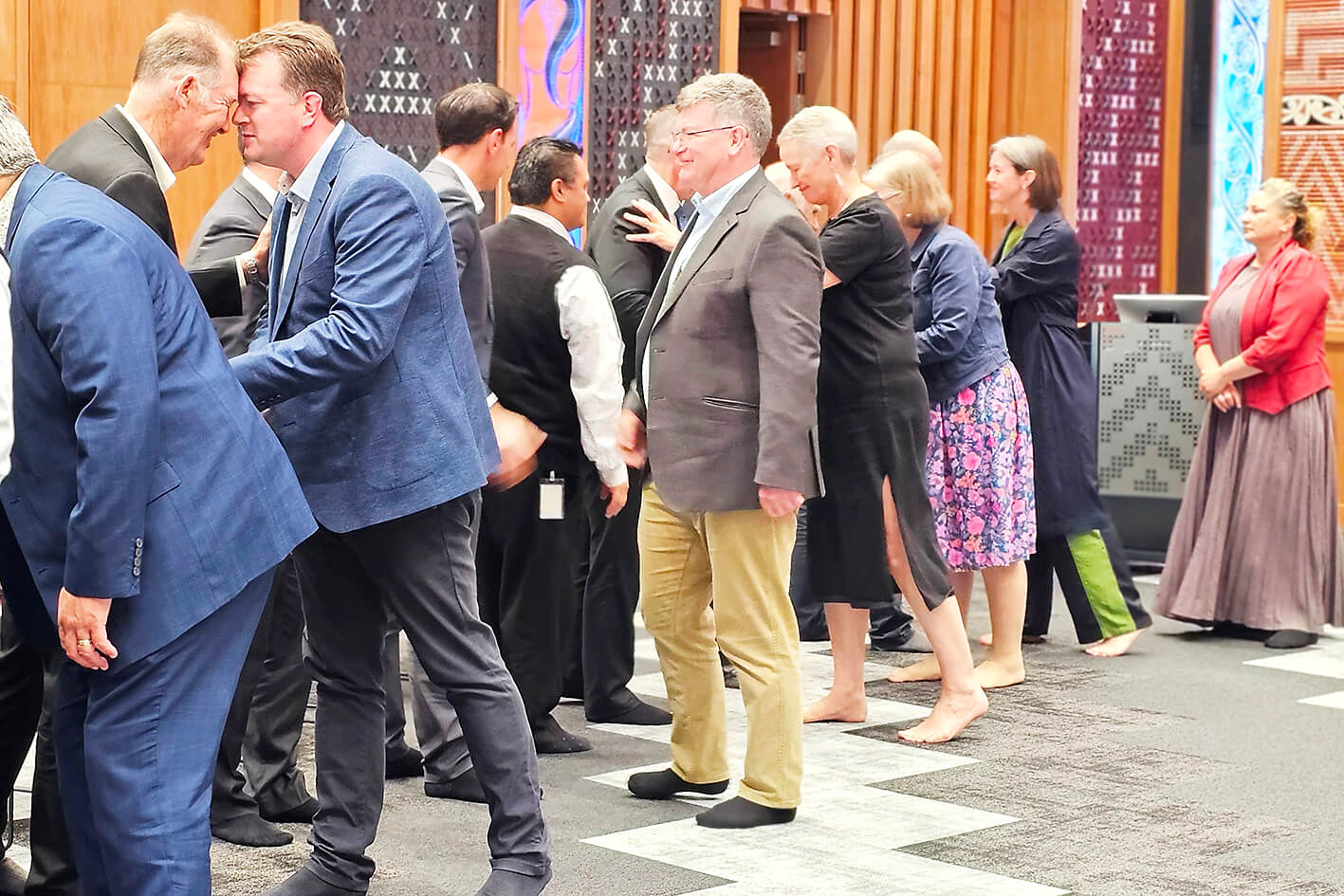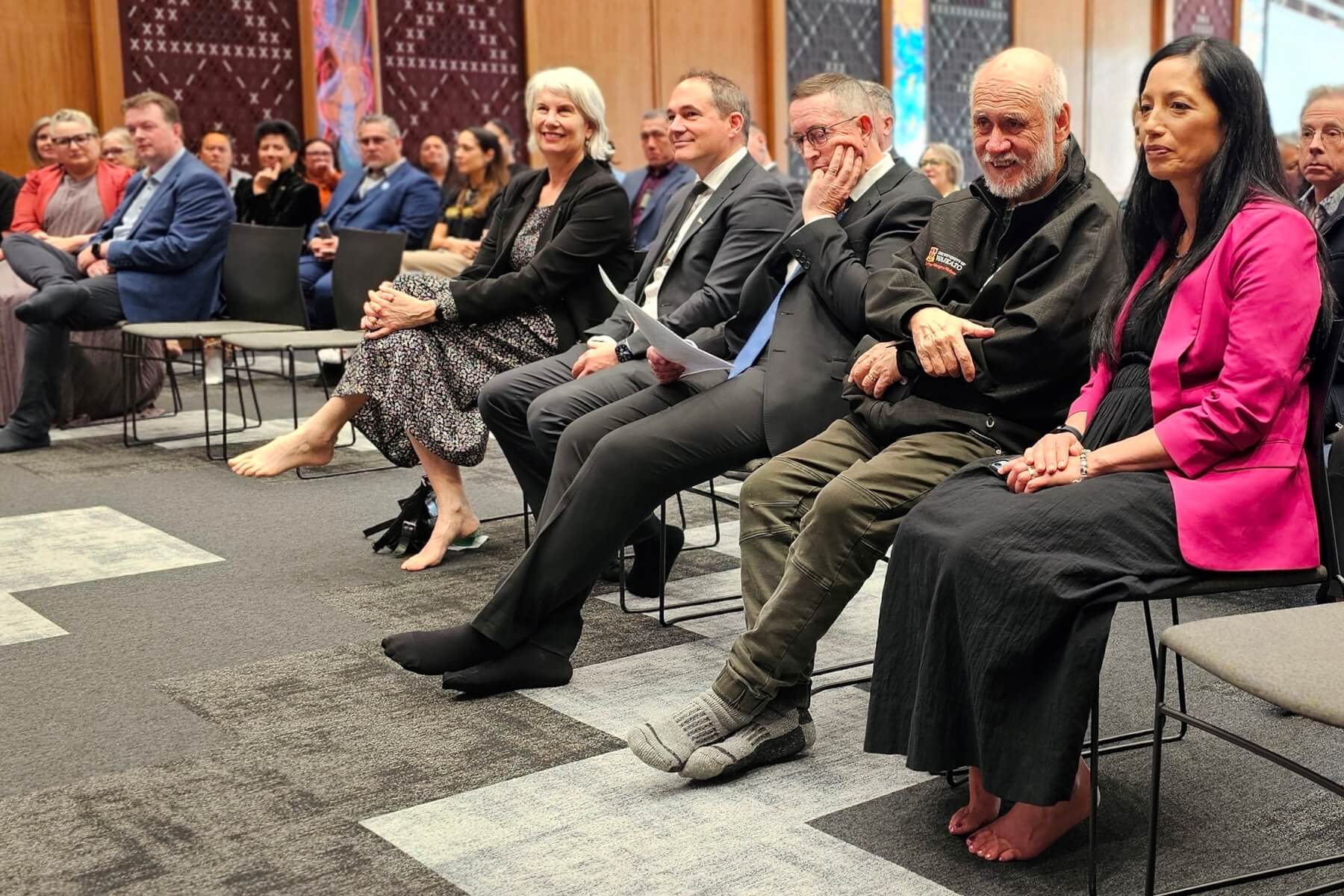Three central North Island primary health organisations have signed a Memorandum of Understanding with Waikato University to tackle New Zealand’s health workforce shortages.

Signed and sealed, from left: Neil Quigley, Taima Campbell, Rachel Brown, Justin Butcher and Jo Lane. Photo: Mary Anne Gill.
In putting pen to paper, chief executives from Pinnacle, Hauraki and National Hauora Coalition have committed to creating a regional network of training facilities throughout Waikato and King Country to support clinical placements across a range of primary care health professions.
The memorandum comes a month after the government gave Waikato the green light to develop a business case to become the country’s third medical school.
Jo Lane, the university’s pro vice chancellor of health, said the university had significantly expanded its teaching and research activities in recent years starting with a graduate programme for nursing when it established the country’s first new nursing school in more than 20 years.
Pharmacy and midwifery graduate programmes will start next year.

Justin Butcher, Pinnacle CEO at the signing ceremony. Photo: Mary Anne Gill.
“Midwifery in particular is hot off the press… the Midwifery Council accredited our programme on Friday right in time for today’s ceremony,” he said.
“The success of these new health programmes is to a large extent dependent on our clinical placement providers and the quality of the clinical patient experiences that we can provide to students. In short, if students have a fantastic time doing a clinical placement in primary care they’re much more likely to ultimately want to work in primary care.”
Pinnacle is the parent group of the Pinnacle Midlands Health Network, a primary health organisation that oversees 84 general practices across Waikato, King Country, Tairāwhiti, Taranaki, Rotorua, Taupō-Tūrangi and Thames-Coromandel.
Chief executive Justin Butcher said New Zealand trains the fewest number of health graduates per capita in the Organisation for Economic Cooperation and Development (OECD).
“We’ve got a little way to go yet, but we need to embrace opportunities to do things differently and to try new approaches. And that for me is where the relationship and the work that the university here is doing.”
Hauraki chief executive Taima Campbell said her organisation was smaller than Pinnacle with an enrolled population of almost 85,000 mostly rural and Māori people.
“We’re looking forward to the opportunity to support you and your graduates working in our workforce. We cannot wait.”

Pinnacle chief executive Justin Butcher and Waikato University professor Ross Lawrenson hongi while honorary professor Jo Scott-Jones waits his turn at the signing of a Memorandum of Understanding between Waikato University and three primary health organisations in Hamilton this week. Photo: Mary Anne Gill.
National Hauora Coalition is a Māori-led charity covering 60 general practitioner practices across New Zealand, many in the Waikato and King Country.
Chief executive Rachel Brown said the memorandum was an opportunity for students to have placements in primary care, to love their placements, be welcome and therefore want to work in that environment afterwards.
“It’s a privilege to be part of this significantly important partnership.”
Vice chancellor Neil Quigley said the university had set itself the goal of addressing the issues in health when it started developing its health programmes.
“One of the advantages of starting fresh is that you avoid the legacy problems of having been going for a long time and brining all of that history and past ways of doing things with you.
“So, we’re quite determined that we’ll learn the lesson and find ways to do things differently.”

Waikato University’s Pacific assistant vice chancellor Keakaokawai Varner Hemi, right alongside Tom Roa (Ngāti Maniapoto, Waikato, Ngāti Apakura), professor of Te Pua Wananga ki te Ao – Faculty of Māori and Indigenous Studies were present at the signing with from left Hamilton mayor Paula Southgate, Hamilton East MP Ryan Hamilton and vice chancellor Neil Quigley. Photo: Mary Anne Gill.








